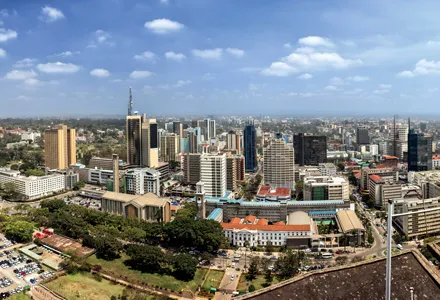The Kenyan Government is opting to privatise the construction and maintenance of several of its major highways. This change in policy will be introduced over the next two years. The main reason for the switch is that country has an annual infrastructure financing gap of some US$22 billion. The lack of funds available has meant that the Kenyan Government has only been able to allocate a mere $22 million/year for road maintenance. In addition to that, the government will at pave least 10,000km of roads over n
March 25, 2015
Read time: 1 min
The Kenyan Government is opting to privatise the construction and maintenance of several of its major highways. This change in policy will be introduced over the next two years. The main reason for the switch is that country has an annual infrastructure financing gap of some US$22 billion. The lack of funds available has meant that the Kenyan Government has only been able to allocate a mere $22 million/year for road maintenance. In addition to that, the government will at pave least 10,000km of roads over next five years. The government has appointed transaction advisers for three major road projects and one of these key links is the 485km Mombasa-Nairobi highway. It will also looking to appoint a company to charge tolls and maintain the 176-m road connecting Nairobi with Nakuru.








